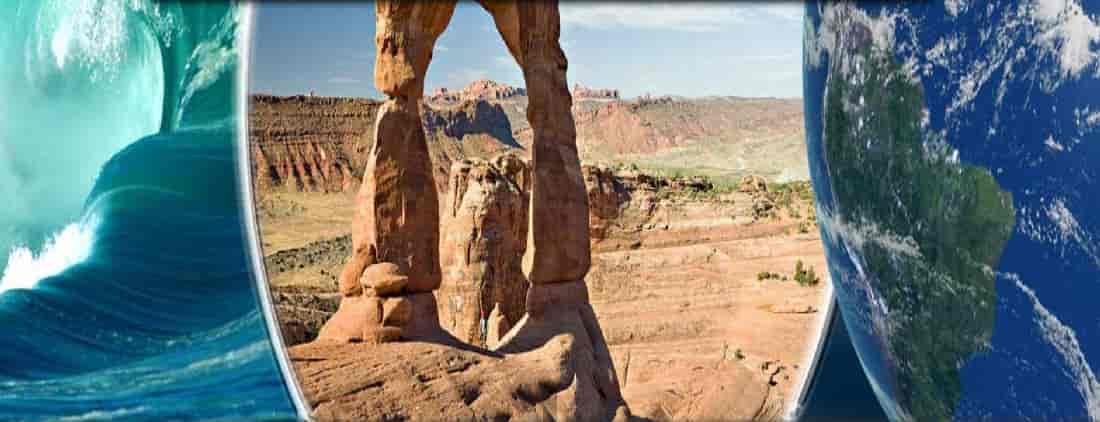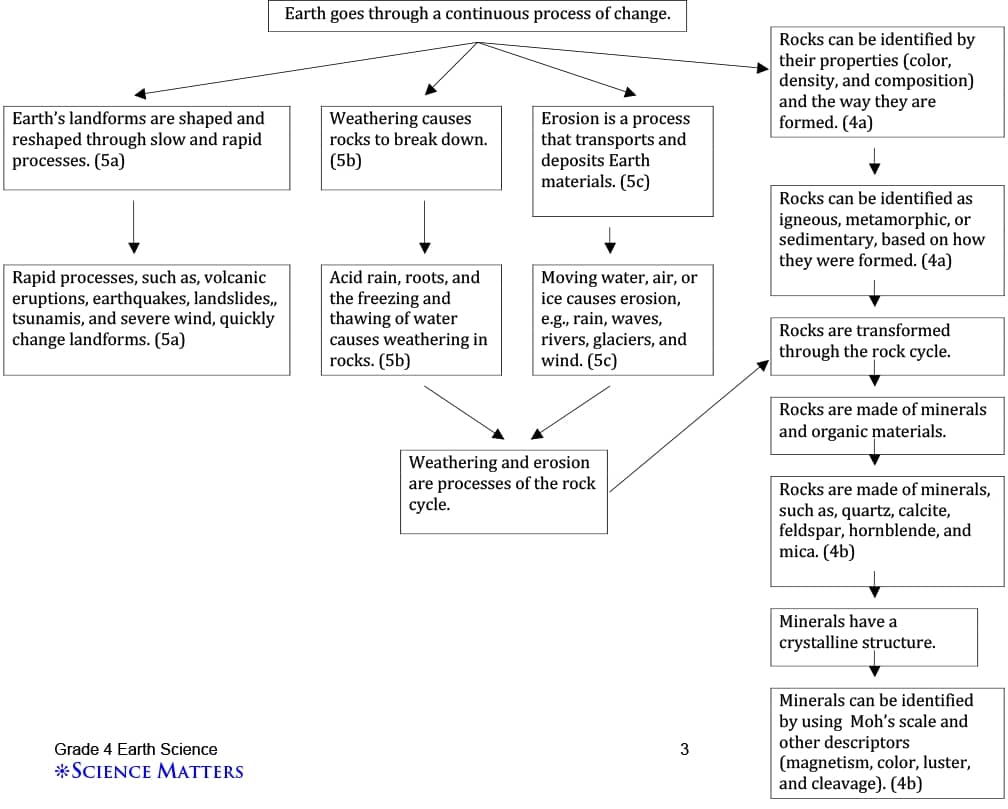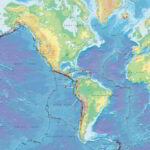In this Grade 4 Earth Science Course Unit, students will learn about the Earth’s continuous process of change: how the Earth changes and is shaped through slow and rapid processes. It uses hands-on investigations that teach the effects of weathering and erosion. Students will also understand the properties of rocks and minerals. The Grade 4 Earth Science Unit takes students through a set of research activities, experiments, learning experiences, questions, and assessments. Assessments include pre-, post-, and formative assessments. For all files at once, you can download the complete grade 4 Earth Science lessons (zip file, 26mb). You can see all of our Earth Science educational pages here and a recent post for 4 Free Middle School Earth Science Lesson Units.
| Introduction and Conceptual Flow Narrative | 1 | Download PDF |
| Conceptual Flow Graphic | 3 | Download PDF |
| Pre-Assessment | A (Assessment File) | Download zip (3 PDF’s) |
| Lesson 1 Rapid Processes Change Landforms | 4.1 | Download zip (4 Files) |
| Lesson 2 Rockin” Roots | 4.2 | Download zip (3 Files) |
| Lesson 3 Slowly Reshaping Earth’s Landforms | 4.3 | Download zip (2 Files) |
| Lesson 4 Introduction to the Rock Cycle | 4.4 | Download PDF |
| Formative Assessment #1 | B (Assessment File) | Download PDF |
| Lesson 5 Sorting Rocks Using Properties | 4.5 | Download PDF |
| Lesson 6 Transforming Rocks | 4.6 | Download zip (4 PDF’s) |
| Lesson 7 All About Minerals | 4.7 | Download zip (2 Files) |
| Lesson 8 Minerals Have A Crystalline Structure | 4.8 | Download zip (2 PDF’s) |
| Lesson 9 Mystery Minerals | 4.9 | Download zip (4 Files) |
| Post-Assessment | C (Assessment File) | Download zip (4 PDF’s) |
The Grade 4 Conceptual Flow Narrative for Earth Science expands on the topics shown in the conceptual flow image by detailing the concept(s) discussed in each lesson as well as the linkages that connect one lesson to the next. A conceptual narrative connects each lesson to the one that comes before it and the one that comes after it, ensuring the development of student understanding as students progress from one concept to the next.
-love learning -your best ed lessons guide, Scott





